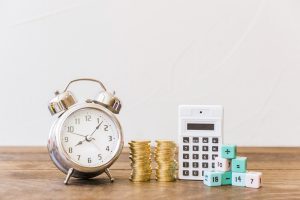The Difference Between BC’s ‘Speculation and Vacancy Tax’ and Vancouver’s ‘Empty Homes Tax’
If you own property in Vancouver, there are two taxes you’re likely aware of by now: the BC Speculation and Vacancy Tax, and the Vancouver Empty Homes Tax.
The thing is, not everyone realizes that these aren’t just two names for the same tax. They’re separate, and each one requires property owners to complete an annual declaration.
Here’s what to expect from each of these taxes, why they were implemented, and how they may impact the housing market in Vancouver:
BC’s Speculation and Vacancy Tax
What it is: The government of BC’s Speculation and Vacancy Tax
Who should be aware: Anyone who owns residential property in BC
What it’s for: This provincial tax was designed in response to unaffordable and unavailable markets in urban areas like Vancouver. It targets those who own residential property in BC but don’t pay income taxes here.
How much does it cost: The tax rate is 0.5% of the previous year’s assessed property value for Canadian citizens, and 2% for foreign owners and satellite families (households who earn over 50% of their income from outside of Canada).
Why you should care: Even if you just own one home and it’s your primary residence, you need to opt out every year (in 2019, the deadline is March 31). If you forget to submit a declaration by the due date, you’ll be taxed the maximum 2% regardless of your property’s status.
Most BC residents will be exempt from the tax. There are also some specific regions that aren’t subject to the tax, and you may be eligible for tax credits up to $2000, such as if you have a vacation home or cabin.
If you don’t meet the exemption criteria, payment is due July 2, 2019.
What it is: The city of Vancouver’s Empty Home Tax
Who should be aware: Anyone who owns residential property in Vancouver
What it’s for: This municipal tax was designed as a response to Vancouver’s unaffordable housing market. Like the provincial speculation tax, the Empty Home Tax targets those who own residential property in BC but don’t pay income taxes here. It’s also meant to encourage homeowners to put up their non-principal residence(s) for rent.
How much does it cost: Empty properties are subject to a tax of 1% of the property’s assessed taxable value.
Why you should care: Declarations were already due on February 4, 2019. If you own a home in Vancouver and don’t live in it–but have tenants at least six months of the year–this tax shouldn’t apply to you. There are several exceptions for those who own empty homes (check out the list of exemptions here).
The City says that “net revenues from the Empty Homes Tax will be reinvested into affordable housing initiatives.”
As a Vancouver property owner, you may have to pay both the municipal tax and the provincial tax. It may be too soon to really see the impact of these taxes on the Vancouver housing market. It may or may not result in more occupied homes, supporting the high demand for rentals. It could mean a drop in assessed home prices by curbing foreign investment. But it may also mean that BC buyers who have a mortgage on a home they bought last year could end up owing more in tax on their home than they’d get by selling it.
Whatever the outcome, take the time to educate yourself on both taxes, and make sure you submit your declarations by their respective deadlines.
Share
